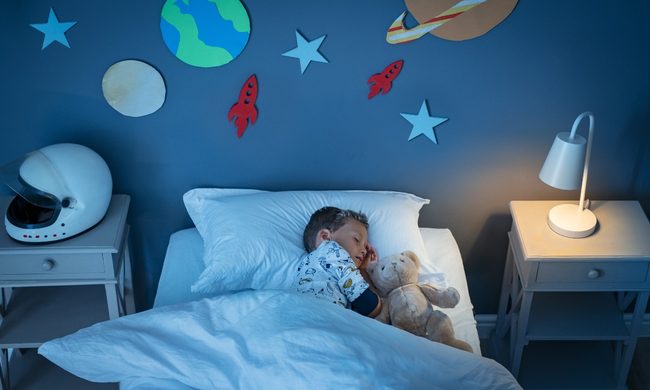Everyone knows that to be well rested, you need a good night’s sleep. But for infants and toddlers, naps throughout the day are also necessary. Naps improve a child’s health and mood. However, most parents wonder when children must stop napping. Is it really time for them to put this daily routine behind once your kid reaches preschool? Let us weigh in on the issue.
Why do young children have to nap?

To decide whether or not a 4-year-old should still be taking naps, you should first understand why naps are needed at all. Babies grow rapidly in their first few years, both inside and out. All of this development requires lots of energy, which is why newborns sleep an average of 14 to 17 hours per day. Naps give newborns and older babies alike a chance to rest their minds and bodies and let them recharge. Naps are great for a child’s mental and physical health. A study found that 2-year-olds who did not get a nap were less happy, more anxious, and became frustrated more easily than those who did get a nap.
Other benefits of napping in young children have also been discovered. In one study, preschoolers were divided into two groups, with one getting a nap and the other not. Then, both groups played a memory game. Those preschoolers who did take a nap did better at the game than those who did not. Napping helps to maintain a healthy weight, and people who sleep irregularly and are tired are more likely to eat unhealthy foods or binge eat. This contributes to an increased risk for obesity.
When should my child stop napping?
Once they pass the age of 2, not all children will continue to need naps. Toddlers and preschoolers should get 11 to 14 hours of sleep every day, and while a good night’s sleep is important for this age group, a daytime nap may also be in order. Whether your 4-year-old will need to nap is dependent on their individual personality. You can determine if a child is ready to forgo their afternoon nap if their mood during the afternoon is fine without a nap.
A young child who is cranky if they don’t nap is probably not ready to stop napping. At around 5 years old, naps are no longer very beneficial to children and can actually disrupt their nighttime sleep. However, being overtired can also cause issues with falling asleep at night. In these instances, children, teenagers, and adults alike can benefit from short “power naps” during the day. These should be no longer than a half hour.
How do I make sure my child sleeps soundly?
Provide your child with a comfortable, cool, quiet place to sleep in both day and night. For infants and young toddlers, this place will probably be a crib and for older children, a bed. Young children do well with routines, so make naps a habit by putting them down at the same time every day, preferably always in the same place. A special blanket or stuffed animal may help comfort your child so they fall asleep and stay asleep.

Daytime naps should be short, as studies have shown that toddlers who nap longer have a more difficult time falling asleep at night. Make sure your child goes to bed around the same time each night. Taking all of these steps can help set the right mood for a successful nap time or bedtime.
How do I transition my child out of naps?
Initially, your child may be a bit irritated without a nap. If they are throwing tantrums after not taking a nap, however, they should likely continue to get daily naps until a later date. A toddler transitioning from napping to staying awake doesn’t have to constantly be busy. In fact, some people recommend replacing a nap with a shorter amount of afternoon quiet time. During this time, children can read, do arts and crafts, or play with toys by themselves in an environment free of distractions like people talking or the television going. Afternoon quiet time allows your child to rest without napping.
Napping is a crucial part of a baby’s growth cycle. As children get older, they require less sleep and shorter naps. To conclude, it is normal if your 4-year-old still needs a nap. Just try to change this habit before they start kindergarten unless their school has nap time.


